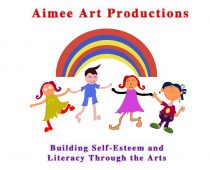It gives us great pleasure to introduce you to Jenny Wise!
Jenny homeschools four children and shares her adventures in homeschooling at Special Home Educator. She is passionate about giving her children the best education possible, and by doing so from home.
Below is an article written by Jenny, as well as her website information.
Happy reading!
How to Ensure Your Child with Special Needs Transitions Successfully from School to Adulthood
When a child with special needs is in elementary and secondary school and receives special education services, she has an Individualized Education Program (IEP), which is a legal document specifying her learning needs and the services the school will provide to meet them. The IEP also includes benchmarks and the process for measuring her progress toward meeting her goals.
Additionally, the Individuals with Disabilities Education Act (IDEA) ensures that she will receive further education and effective transition services geared toward post-school employment or education. Parents work with educators to write and approve the IEP each year and to coordinate transition services, but many parents of children with special needs worry that their children will not have the support they need to thrive when they exit the school system. Our guide will help you make sure the transition is as successful as possible.
Make Sure Your Child Receives a Standard Diploma if Necessary
If your child with special needs wants to attend college after high school graduation, she should receive a standard diploma. Alternate diplomas are appropriate for some students with developmental disabilities or other challenges that will prevent them from going on to higher learning, but, a standard diploma is necessary for acceptance at nearly any college or university in the country.
One way to ensure your child receives a standard diploma is to make sure that the IEP team establishes goals and the highest possible expectations for your child throughout her high school career. Work with educators and guidance counselors to understand the standard graduation requirements and to work those into your child’s IEP.
Give Your Child Opportunities to Get a Hands-On Education
Hands-on learning helps students of all ability levels, but it especially is important for students who struggle with academics because of physical and learning disabilities or disorders. Similarly, kids who grow frustrated in traditional classrooms because of dyslexia often do better in vocational settings or after-school programs that give kids a chance to work with their hands.
Kids with special needs also do well when they learn in an environment with hands-on learning opportunities because they like to solve problems and often choose to pursue jobs or careers in science, technology, engineering, and mathematics (STEM) fields. In fact, reports show that approximately 34% of students on the autism spectrum lean toward STEM courses and careers. That may be because STEM courses often have learning supports built into them, including opportunities for regular movement, classes with built-in stopping and starting points, smaller class sizes, respectful and supportive learning environments, and flexible teaching styles.
Plan for Accommodations Throughout Your Child’s Lifetime
Just because a child with special needs graduates from high school, the accommodations do not need to end. If you carefully choose a caregiver who is competent, caring, compatible with your child, cooperative, and communicative, you will rest assured that your child will thrive into and throughout adulthood.
You also want to be sure that you have all of your affairs in orders and that you have secured the future for your child with special needs. Name a guardian for her, establish trusts, write a will, and put an accountant, lawyer, and executor of your will in charge in the event of your death.
It’s also a good idea to include your child with special needs in these decisions insofar as she is able to understand and participate. Give her a chance to express her wishes and make sure that you honor them to the best of your ability. It is important to respect her feelings and goals while you are planning for accommodations for her.
There are many steps you can take to ensure the successful transition from high school to adulthood for your child with special needs. It’s a good idea to get involved in the IEP writing and transition team planning while your child is in school so that your expectations are met and your child is set on a path to a productive adulthood. It’s also important that you provide her with hands-on learning opportunities and plan lifetime accommodations for her.
Image via Pixabay by ellemclin



